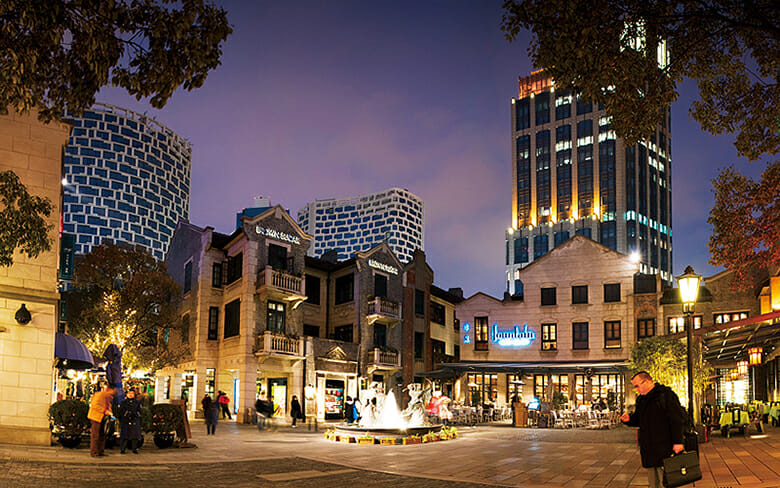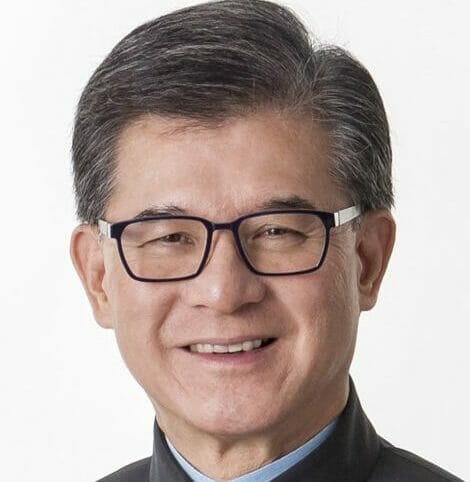
Shanghai Xintiandi’s lights weren’t bright enough to attract investors this year
The long-awaited listing of Shui On Land’s Xintiandi unit has faltered at the final hurdle, with the Shanghai-based developer scrapping — for now — the Hong Kong IPO of an ownership vehicle for the group’s mainland commercial properties.
The application for the listing of stand-alone entity Shui On Xintiandi, filed on 13 September of last year, has lapsed into inactive status, according to the Hong Kong stock exchange. The HKEX has been reeling from a sell-off in red-chip tech stocks, and the key Hang Seng index hit a six-year low this week.
On Monday, The Paper reported that the developer controlled by Hong Kong billionaire Vincent Lo planned to continue promoting the listing of Shui On Xintiandi and would adjust the listing schedule in accordance with market changes.
“Although the current market conditions are quite challenging, we are very confident in the development of Shui On Xintiandi,” a Shui On representative told the Shanghai-based news website. “We will choose the right time to go public to get the maximum effect.”
Timing is Everything
Last August, sources told Bloomberg that HKEX-listed Shui On aimed to raise at least $500 million from the separate listing of the Xintiandi unit. Morgan Stanley and UBS Group would oversee the share sale.

Vincent Lo will have to wait a bit longer for his $500 mil payday
The commercial property unit holds a portfolio of Shui On’s 13 completed commercial assets, including Shanghai Xintiandi, the landmark shopping and entertainment complex in China’s commercial capital.
As far back as May 2012, Shui On had announced its intention to sell shares in the Xintiandi platform. After an IPO plan fizzled, Canadian giant Brookfield in 2013 agreed to invest $500 million and take a 21.7 percent stake in the subsidiary, but the Canadian asset management giant exited in late 2018, leaving the unit once again wholly owned by Shui On.
According to Shui On’s financial report for 2020, the Xintiandi portfolio consists of 1.2 million square metres (12.9 million square feet) of leasable gross floor area. The properties produced rental and related income that year totalling RMB 2.8 billion (now $440 million), down 7 percent from 2019.
At the beginning of this year, Shui On promoted longtime executive Jessica Wang to executive director and chief executive of the group, with Allan Zhang assuming the CEO role for Shui On Xintiandi.
Shui On made the senior-level moves following its rebound from a pandemic-ridden year, with the Shanghai-based builder posting RMB 11.9 billion ($1.8 billion) in revenue in the first half of 2021, up 726 percent year-on-year, according to its interim report.
Developers Depressed
Recently released financial results from blue-chip Hong Kong-listed developers Swire Properties and Wharf Holdings gave a glimpse of the unease suddenly gripping Greater China’s real estate world.
Swire last week reported a nearly 25 percent drop in underlying profit attributable to shareholders for 2021, as the company struggles with weak commercial leasing and hospitality environments in its core markets of Hong Kong and mainland China.
Wharf, meanwhile, reported a 7 percent rise in its 2021 underlying net profit, but the developer controlled by Peter Woo’s Wheelock and Company cited lingering COVID-19 troubles and the war in Ukraine as it gave a downbeat outlook for this year.
“The deleveraging campaign (in mainland China) has dealt a massive blow to the debt-laden property sector,” Wharf warned in a filing with the HKEX. “This, combined with challenges such as US-China tensions, has started ripples effects to the economy in 2022. Hence, slower growth is almost inevitable in the near term, posing downside risk to the group’s mainland businesses.”
A Bloomberg index of China developer stock prices fell by 9.7 percent on Tuesday, the business information provider reported, with that decline marking the sharpest drop since October 2008.
Leave a Reply